Why we need to recycle plastic and not add to the eight million tonnes of rubbish in our oceans
The UK needs to clean up its act. Microplastics are clogging up shorelines and blocking our rivers – and it's our fault. Emma Henderson talks to local people who are setting the bar high for recycling the hard stuff
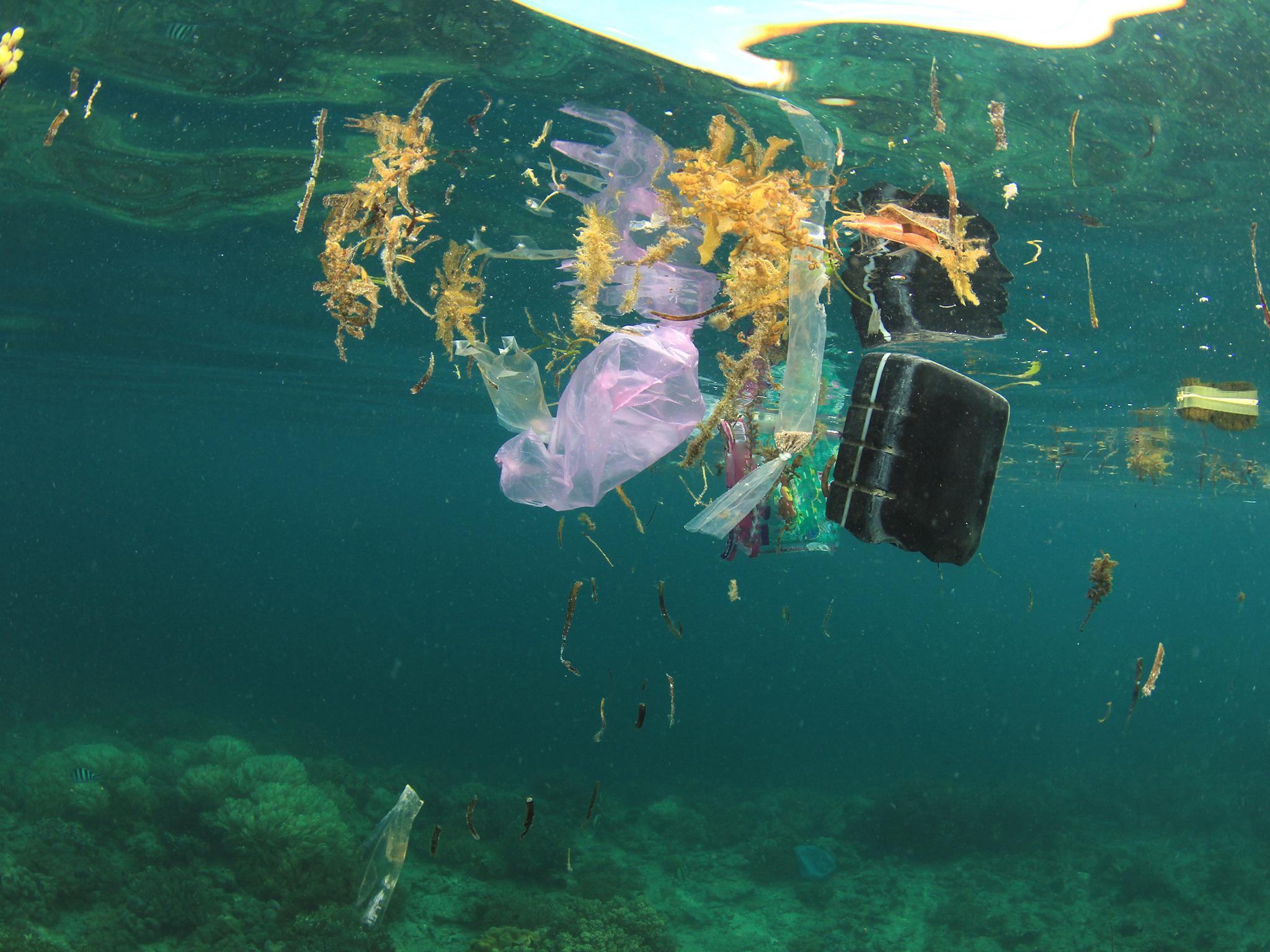
Your support helps us to tell the story
From reproductive rights to climate change to Big Tech, The Independent is on the ground when the story is developing. Whether it's investigating the financials of Elon Musk's pro-Trump PAC or producing our latest documentary, 'The A Word', which shines a light on the American women fighting for reproductive rights, we know how important it is to parse out the facts from the messaging.
At such a critical moment in US history, we need reporters on the ground. Your donation allows us to keep sending journalists to speak to both sides of the story.
The Independent is trusted by Americans across the entire political spectrum. And unlike many other quality news outlets, we choose not to lock Americans out of our reporting and analysis with paywalls. We believe quality journalism should be available to everyone, paid for by those who can afford it.
Your support makes all the difference.It’s no wonder thousands of tonnes of plastic sit unrecycled in landfills – it takes from 450 to 1,000 years to breakdown and decompose. The worst part of all this is that plastics break down into micro-plastics and end up in our oceans. This type of rubbish is known as marine litter. It’s defined as manufactured or processed solid material that is discarded in the marine environment found on UK beaches, which has consistently risen in the past 20 years, according to Surfers Against Sewage’s (SAS) marine litter report.
We live in a world obsessed with throwaway plastics – known as single-use plastics – which rose in popularity in the 1930s, coating everything in the cold, hard, shiny stuff. The luxury of excess packaging comes at a cost to the environment, one that it can no longer afford as our beaches are suffering. Post summer, the UK’s beaches return to their best – empty. But it’s not holidaymakers who are to blame for the plastic pollution problem. It’s the consumer society we have evolved into. Finally, the Government is listening and is considering bringing in a 10 or 20p charge for the use of plastic bottles that would be refundable if the bottle is returned.
Once discarded, plastic is likely to end up in oceans after being washed down rivers, flushed down toilets, or windblown from dumps. This litter is found everywhere from the North Pole to desert islands and affects an estimated 600 species of marine organisms that live in the oceans, which can end up in seafood. We throw away such huge volumes of plastic that around 8 million metric tonnes of it is floating in our oceans: bottles, bags, fishing nets, cotton buds and food wrappers. How can we fix a problem so rooted in our modern lifestyles?
In September, France became the first country to ban plastic cups, plates and cutlery. As part of the Energy Transition for Green Growth plan, it should come into effect in 2020 and is part of a wider green initiative to tackle climate change. But this is a controversial move as Pack2Go Europe, a Brussels-based organisation representing European packing manufacturers, say it transgresses Europe’s regulations on the freedom of movement of goods. The country also banned plastic bags in July, and coffee vending machines will now have to provide biologically-sourced materials that can be composted.
Professor Richard Thompson of Plymouth University says this move is only banning plastic cutlery made from petroleum, and instead it should be substituted for bioplastic. “American football stadiums use degradable food packaging that degrades with the food. We have had 60 years of this throwaway living and we need to recognise that plastic isn’t throwaway. It can have value if it is designed properly so we can recycle it properly and reduce its leakage into the environment,” he adds.
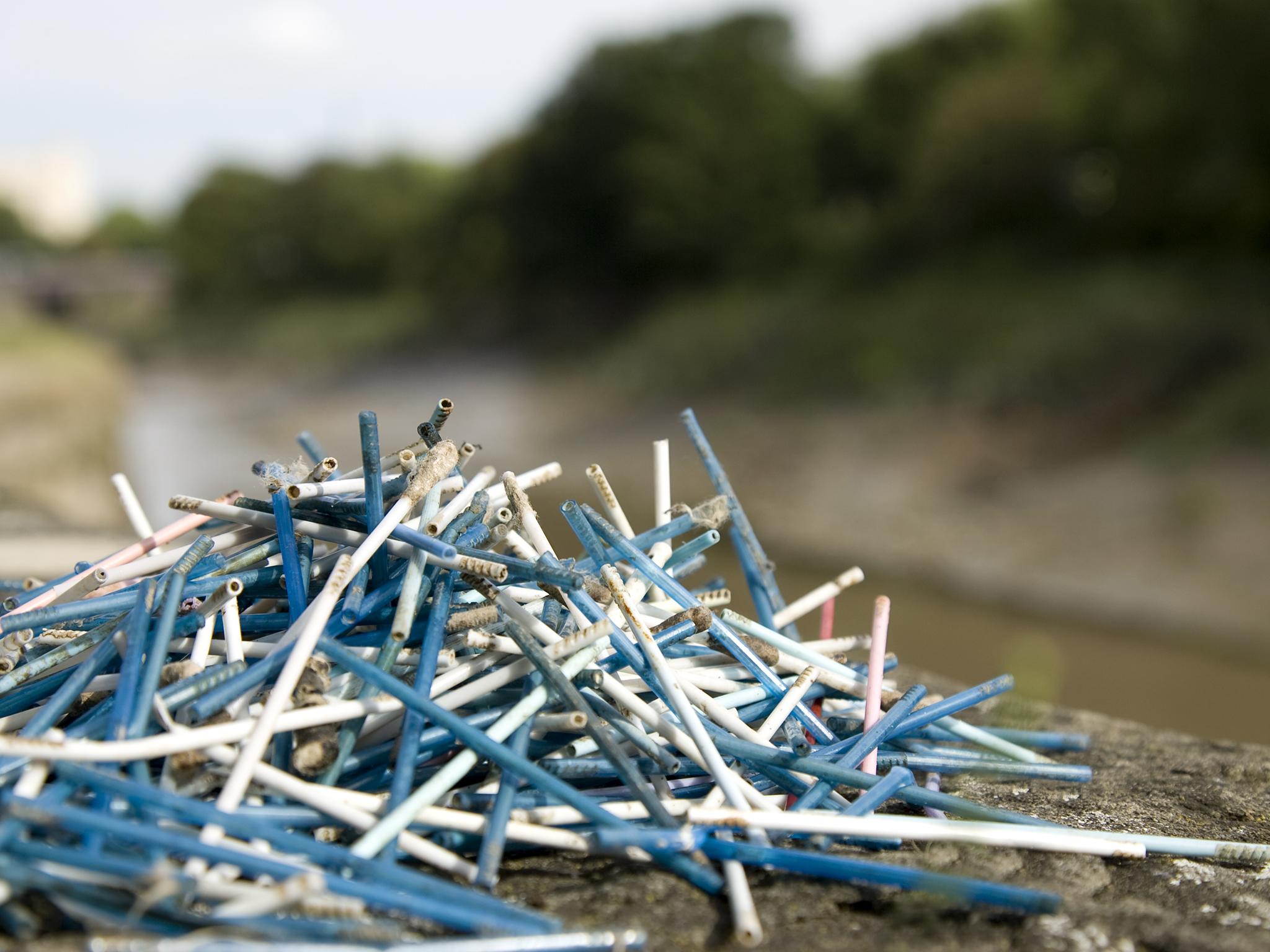
Back in the UK, we are slowly changing our destructive ways with a petition to ban non-recyclable or compostable packaging. The latest effort is banning the sale of plastic stemmed cotton earbuds; an estimated 100,000 buds make it into the Thames Water treatment plant each week. Natalie Fee successfully campaigned to #switchthestick – to swap the troublesome product to a paper stem alternative. Just before Christmas, major supermarkets along with Boots and Superdrug, agreed to sell only the recyclable version by the end of this year.
Fee explains that as the buds are so small they pass through the filters and out into open waters, where they break down into microplastics and “form part of the 'plastic smog' we're now witnessing in our oceans. Ideally people wouldn't flush anything down the loo other than pee, poo and paper.
“Changing to paper stems means the buds are less likely to escape the filters if flushed, which would mean a huge reduction in plastic-to-landfill by all of our water companies each year,” she adds.
In July, Waitrose was the first supermarket to pledge to change the stems to paper, in a move that is expected to save around 21 tonnes of plastic each year. The new stems will be biodegradable and are made from an FSC (Forest Stewardship Council) source of paper. “Minimising our impact on the environment is a top priority and the changes we are making are likely to have a positive affect for marine life,” says Tor Harris, Waitrose’s head of sustainability and responsible sourcing.
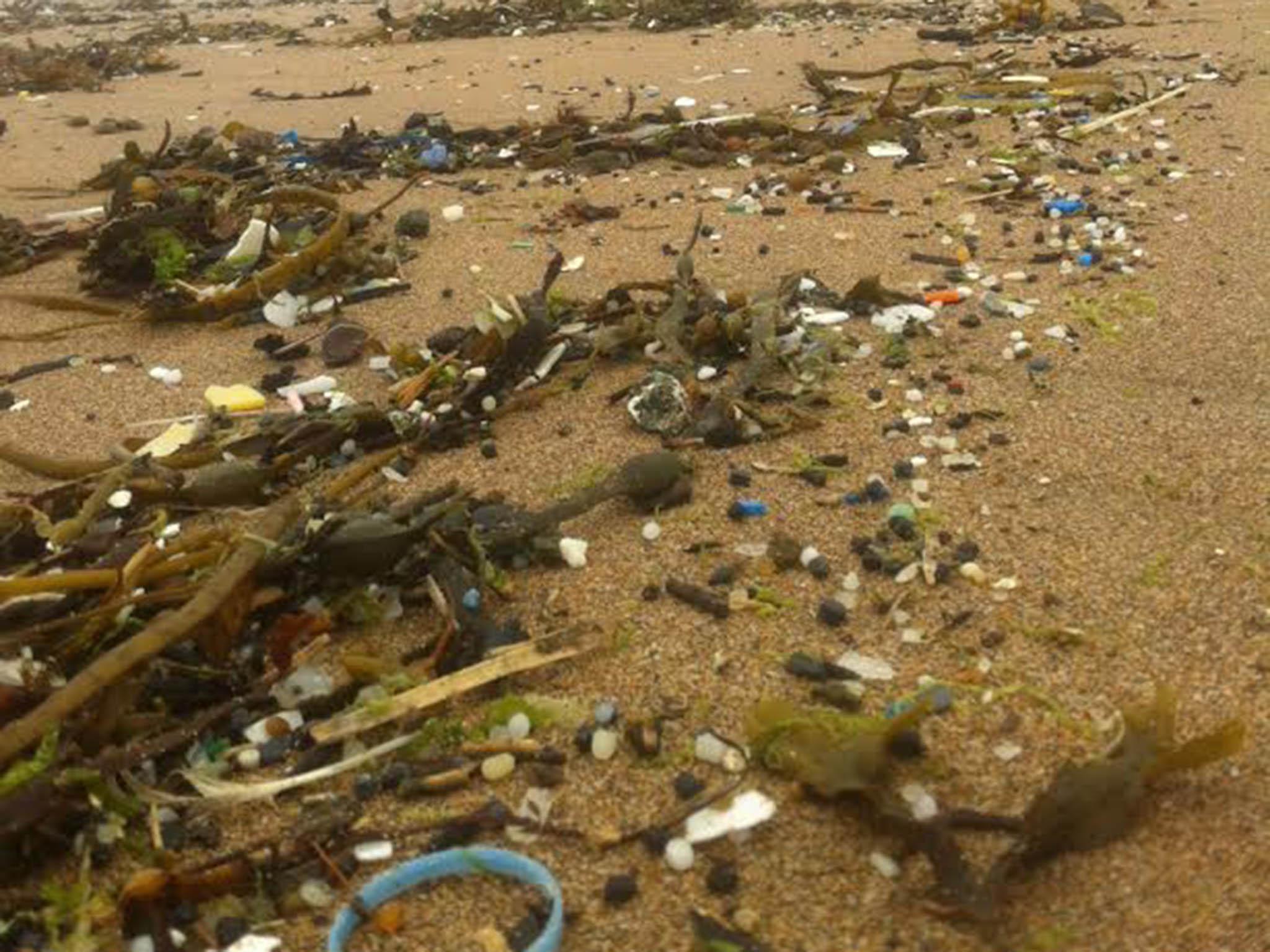
The microbead – found in hundreds of cosmetics and toothpastes – will be banned in the UK in 2017 after huge campaigns. But as the majority of people in the UK do not live or work on the coast, they do not see the direct effect plastics have on the environment and progress is slow.
The Plastic Movement is the first of its kind to recycle all the plastic found on Cornwall’s beaches. Working with TerraCycle, collected plastic will be turned into cosmetics bottles and outdoor furniture, which will be made entirely from high-density polyethylene (HDPE ). Set up by five lifeguards from Bude, north Cornwall, the group has already – with the help of 407 willing volunteers over 13 hours – collected more than 1,300kg of rubbish that had washed up on five north Cornwall beaches. TerraCycle then rids it of seaweeds and barnacles, splits it into polypropylene (PP), polypropylene terephthalate (PET) and HDPE to produce “recycled beach plastic material”.
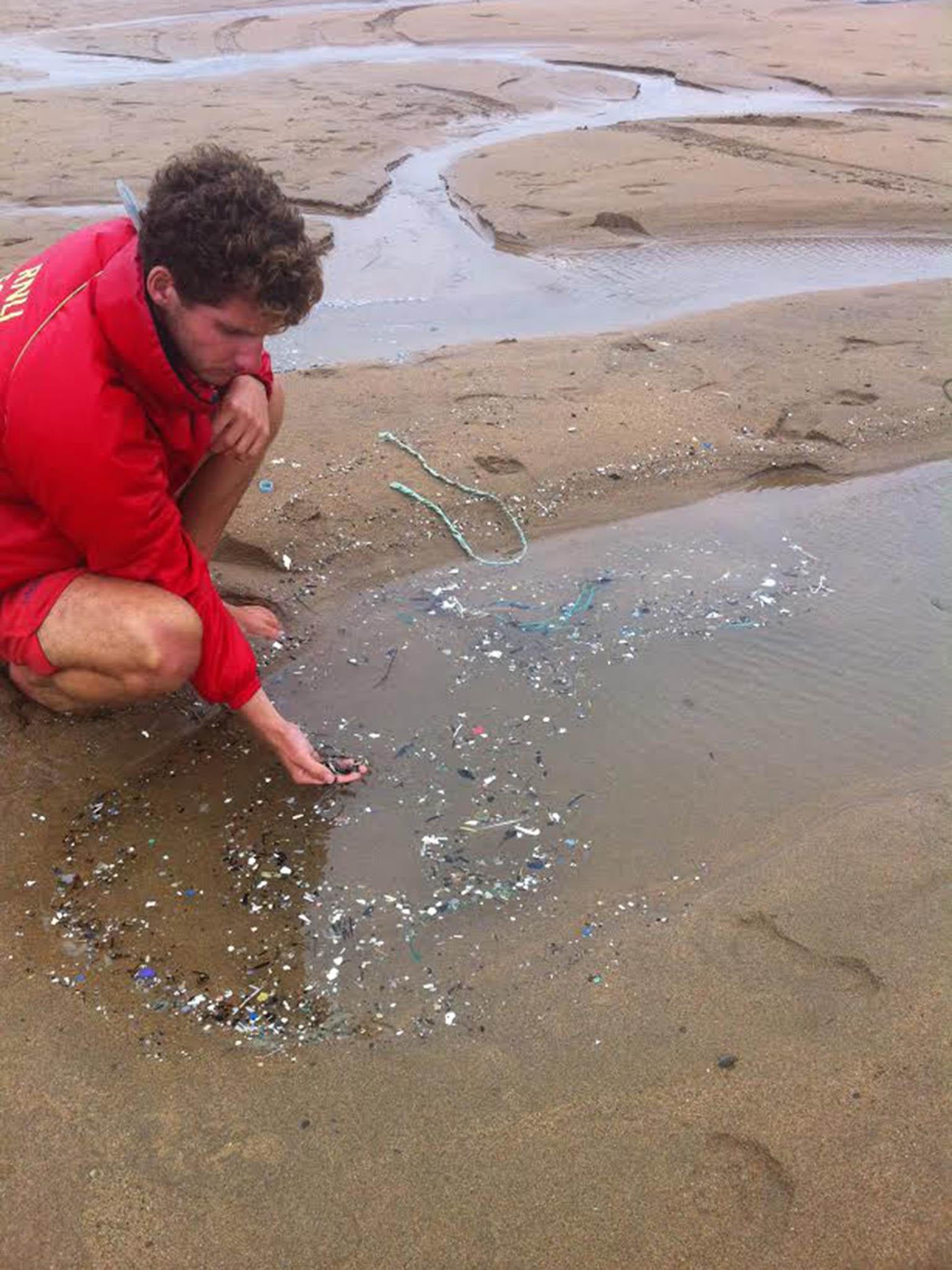
But the reason all this plastic is washed up on beaches is because of the Great Pacific Garbage Patch which is one of five major swirling vortexes in the oceans. It contains billions of pieces of plastic, and estimates of the mass range from 250,000 square miles – roughly the size of Texas – to 6 million square miles, which is the same as 10 per cent of the Pacific Ocean. It is hard to quantify the amount of rubbish in the oceans, as it is always moving. Much of the rubbish in the ocean is below the surface, which ends up sinking and resting on the seabed, stopping photosynthesis. There are other collections, known as geyers, in the Indian Ocean, the south Atlantic, and the north Atlantic, which affects the UK.
“Plastic is never stationary,” says Jim Scown, founding member of the Plastic Movement. “Collections of plastic that gather in the water are controlled by currents that are dominant through the Atlantic Ocean. On every rotation these huge clumps kick out pieces of plastic back into the Gulf Stream, which comes past us in Cornwall and some inevitably end up in our oceans.’’
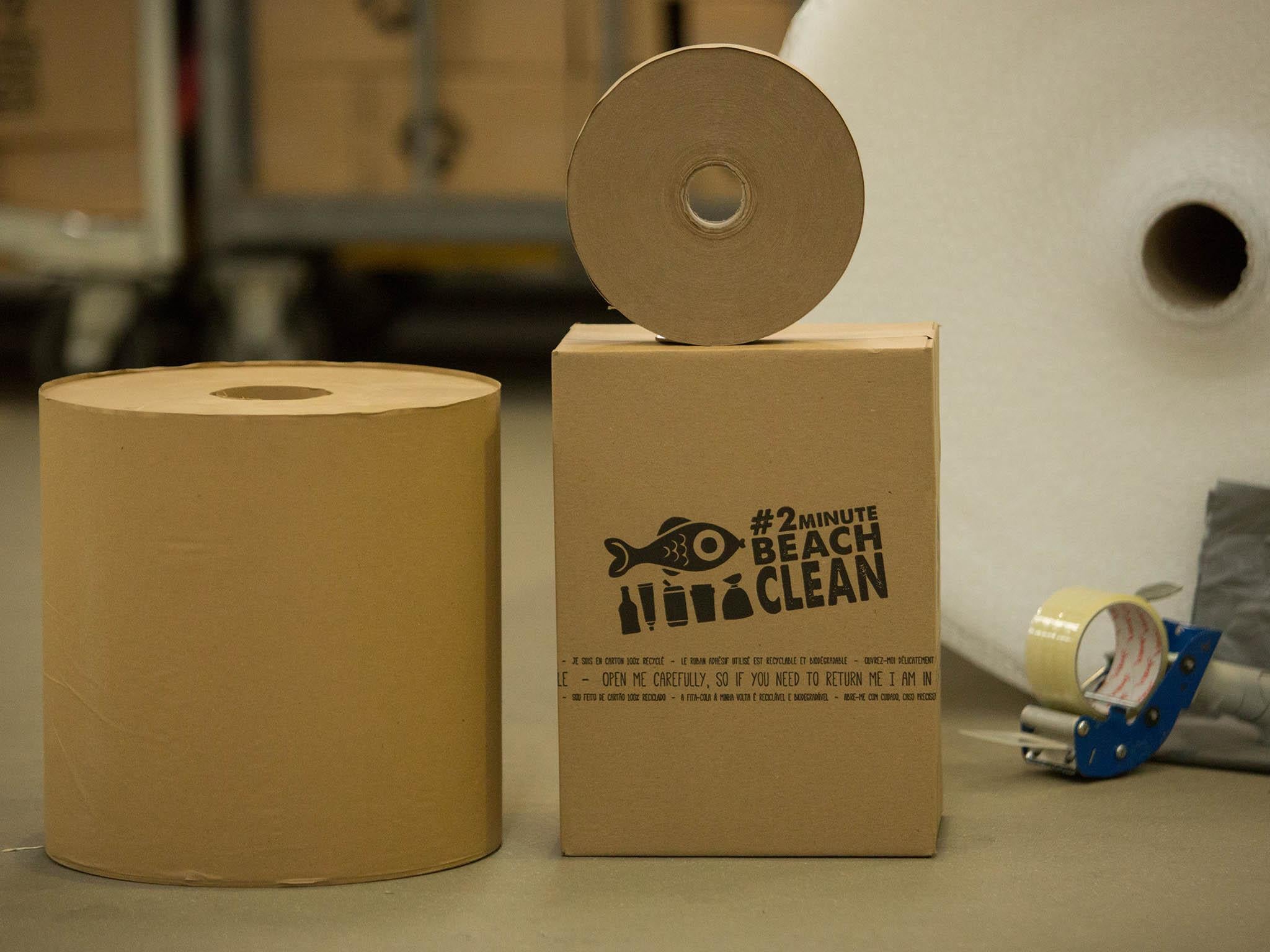
The initiative will be following in the footsteps of Refill Bude, started by Deborah Rosser, who introduced the sale of eco-friendly cups to be used for refills in local cafes – which has since spread to Bristol and Bournemouth. It aims to reduce the coffee cup pollution, as less than 1 per cent of the estimated 2.5 billion takeaway coffee cups used in the UK are recycled each year because the plastic lining is too hard to remove. A major driving force in reducing plastics on our beaches is Martin Dorey, the founder of the two-minute beach clean. Since starting in 2013, it has gone global, from New Zealand to South America, thanks to sharing pictures of the collected rubbish with the hashtag #2MinuteBeachClean. It asks people to give up just two minutes to pick up some litter on the beach.
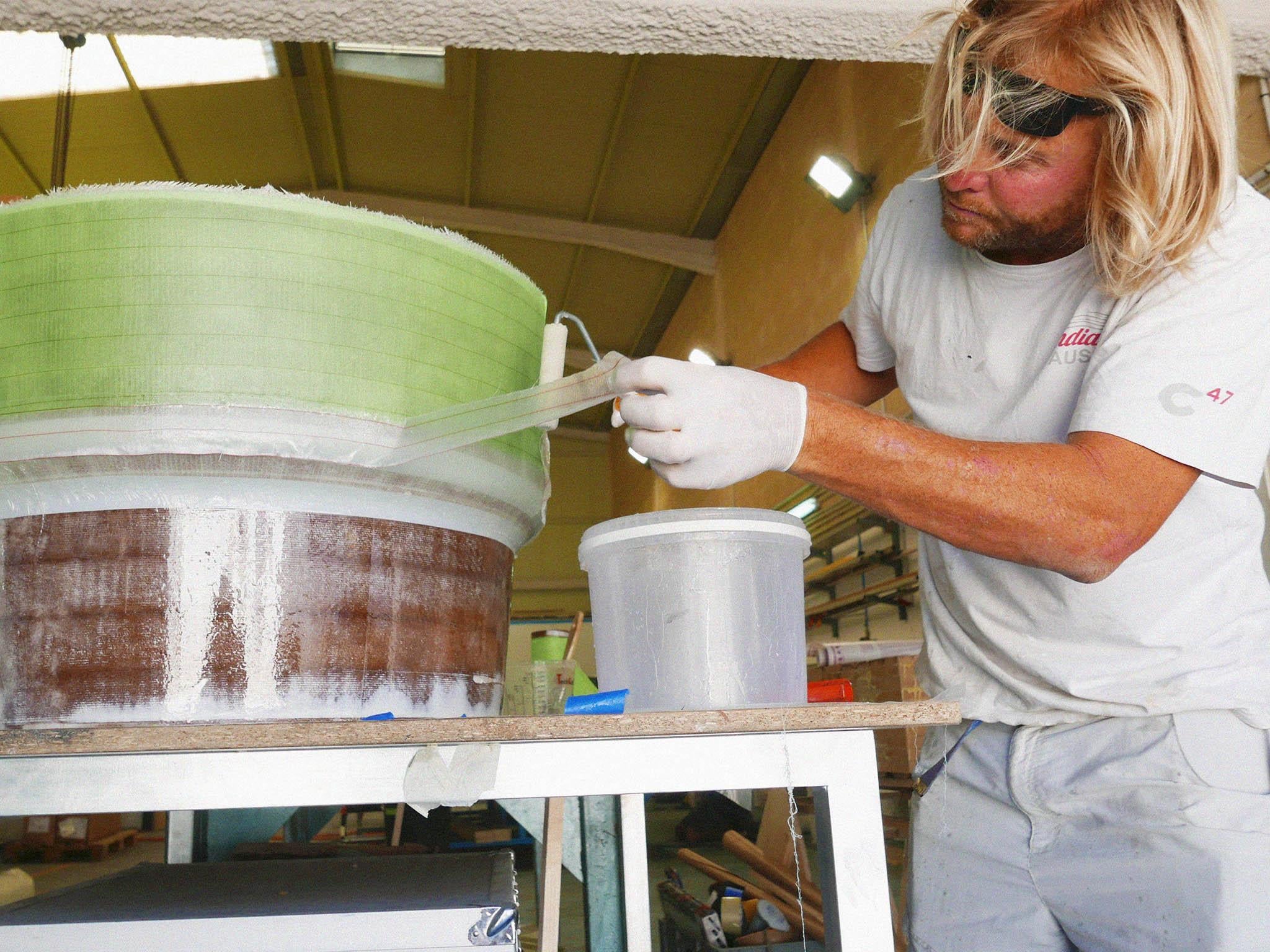
But the problem also needs to be tackled at the source. One company doing this is Surfdome, a nationwide surf shop, which has taken away all of their plastic packaging and instead uses 100 per cent cardboard, gum tape and paper. “We’ve eliminated 14 tonnes of plastic so far – equivalent of 650,000 plastic bottles – which have been replaced with recycled, biodegradable materials,” says Adam Hall, sustainability manager.
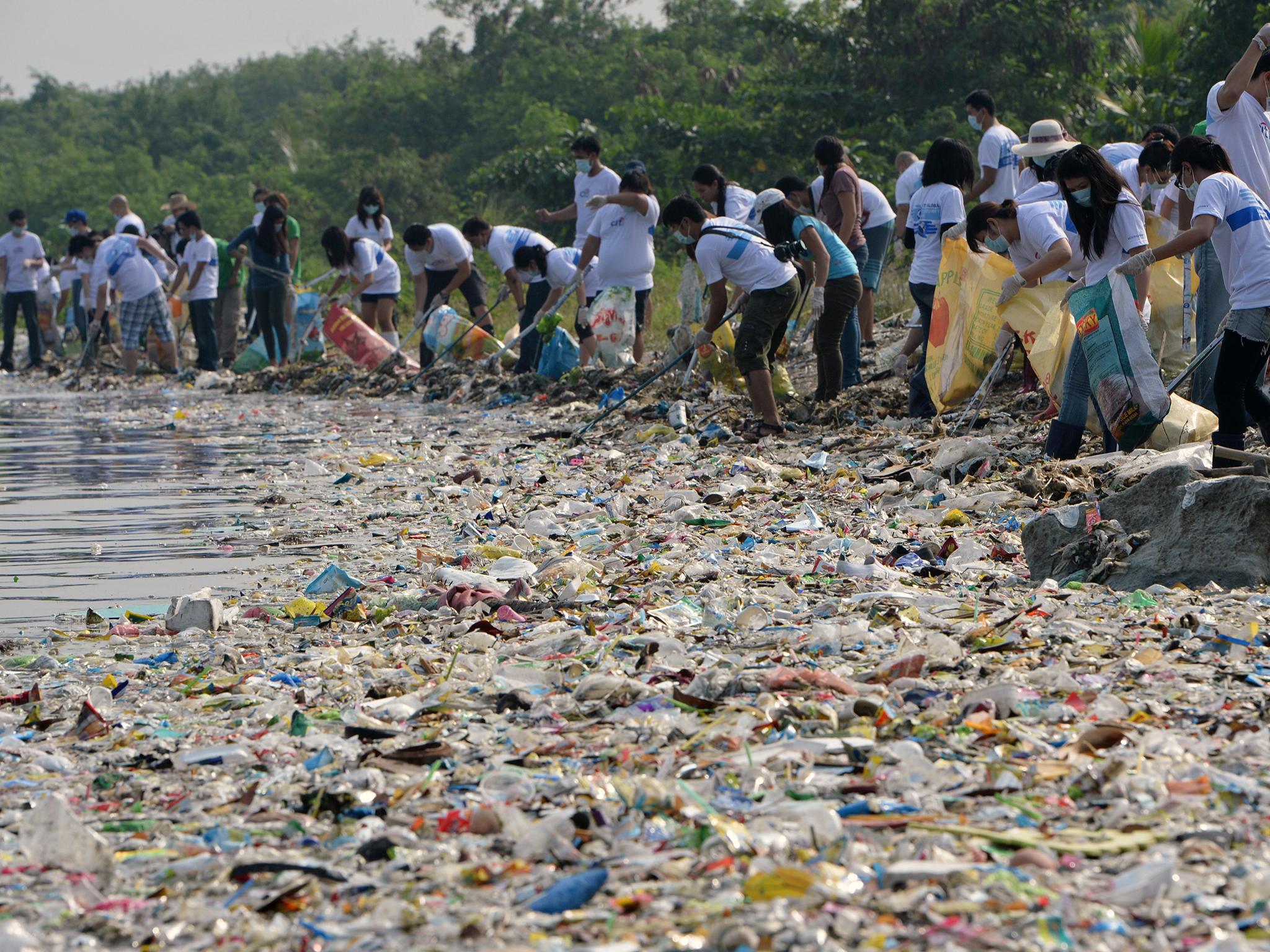
Australian surfers have come up with the idea of creating Seabins. The bin catches rubbish, oil, fuel and detergents and has been designed to be attached to floating docks and pontoons in harbours, or used in lakes and even yachts. Inventor and co-founder Andrew Turton estimates one seabin can catch 1.5kg of floating rubbish per day, which equates to half a tonne a year. “Our goal is that our plastics will not go to landfill or be incinerated. Instead we would like to be part of a circular plastics economy,” says co-founder Pete Ceglinski.
With limited knowledge and education on recycling, Philippines are one of the countries worst affected by marine litter. Freedom Island is not as Eden-like as it sounds. No sand is visible, and plastic bottles, bags and remnants pile and undulate like the sand dunes that should be there. Indonesia’s 200-mile-long Citaram River is thickly congested with household rubbish and dead marine life, where fishing is no longer possible.
Water is starved of oxygen and 60 per cent of the marine life has been wiped out. Locals no longer fish but scour the river for plastic to sell in what is thought to be the world’s most polluted river.
The long-term solution globally is to design, use and dispose of these items properly. If people educate and practise recycling and disposing of plastic items, and more is done to replace plastics with materials that are far easier to decompose, then our oceans, beaches, marine life and humans will be an awful lot healthier.
Join our commenting forum
Join thought-provoking conversations, follow other Independent readers and see their replies
Comments